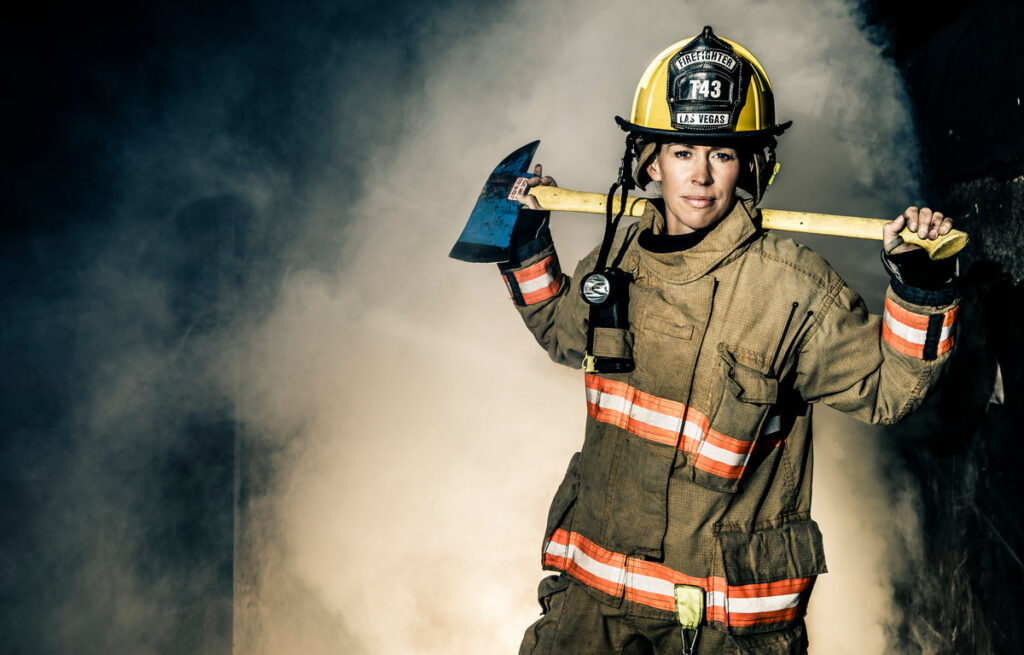
Firefighters and first responders are often seen as heroes, bravely facing danger to protect and save lives. However, behind the badge and uniform lies a serious issue: many of these brave individuals struggle with substance abuse. This problem deserves attention, as it can harm their health and affect their ability to serve the community effectively.
The intense stress and trauma that firefighters and first responders experience can lead to unhealthy coping mechanisms. For example, when faced with life-threatening situations, many turn to alcohol or drugs to numb their pain and relieve stress. Research shows that about 30% of firefighters may struggle with substance abuse, which is significantly higher than the national average. This statistic highlights the need for better support systems to help these heroes manage their mental health.
Support from the community is vital in addressing the issue of substance abuse among first responders. Programs that offer counseling and therapy can make a real difference. For instance, the Firefighter Behavioral Health Alliance has created initiatives to help firefighters deal with their emotional challenges. By providing safe spaces for sharing experiences and receiving treatment, these programs help reduce the stigma around mental health and create a culture of openness.
Education plays a crucial role in preventing substance abuse among firefighters and first responders. Training programs that focus on mental health awareness can equip these individuals with tools to cope with stress in healthier ways. Workshops on mindfulness, stress management, and resilience can provide vital skills that help build a stronger support network. When firefighters learn to recognize the signs of stress and substance abuse, they are more likely to seek help before it becomes a major problem.
What are the Main Causes of Substance Abuse Among Fire Fighters and First Responders?
Firefighters and first responders are heroes, but their bravery comes with a heavy price. The stress and trauma faced in their daily work often lead to substance abuse, which can have serious consequences for their health and safety. Understanding the main causes of this issue is crucial in finding ways to support these essential workers and help them cope with their challenges.
One major cause of substance abuse among firefighters and first responders is the high level of stress they experience. These professionals often witness terrible accidents, fires, and tragedies that can leave lasting emotional scars. For example, after responding to a devastating car crash, a firefighter may feel overwhelmed by the sights and sounds, leading to anxiety or depression. To cope with these feelings, some may turn to alcohol or drugs as a way to escape, creating a dangerous cycle of dependence.
Another important factor is the culture of toughness within the firefighting and emergency response communities. Many believe that asking for help shows weakness, which can prevent them from seeking the support they need. For instance, a firefighter might struggle with feelings of guilt after failing to save someone but may avoid talking about it to maintain a brave face in front of colleagues. This culture can lead to isolation, where individuals feel they cannot share their struggles, making substance abuse seem like the only option for relief.
Additionally, long and irregular working hours contribute to the problem. Firefighters and first responders often work nights, weekends, and holidays, disrupting their sleep patterns and personal lives. This exhaustion can lead to poor mental health and increased reliance on substances to stay awake or unwind after a tough shift. For example, a paramedic who has just completed a long night shift might feel the need to drink to relax, which can quickly escalate into a pattern of misuse.
The causes of substance abuse among firefighters and first responders are complex and deeply rooted in their work environment. High stress, a culture of toughness, and long hours all play significant roles in this issue. Addressing these factors is essential to ensure the well-being of those who serve communities in times of crisis. By promoting a supportive environment and encouraging open conversations about mental health, it is possible to help these brave individuals find healthier ways to cope with their challenges.
Treatments Available to Fire Fighters and First Responders Struggling With Substance Abuse
Firefighters and first responders can face dark times. Many of these brave individuals struggle with substance abuse due to the intense stress and trauma they experience on the job. It is crucial to provide adequate treatments and support for first responders dealing with these challenges. By doing so, not only can lives be saved, but communities can also benefit from healthier and more resilient emergency services.
First, access to specialized counseling can make a significant difference in the lives of firefighters dealing with substance abuse. Many first responders face unique pressures that can lead to unhealthy coping mechanisms. For instance, programs like the “Firefighter Behavioral Health Alliance” offer tailored support that understands their specific experiences. These programs help firefighters talk about their feelings and experiences in a safe space, allowing them to heal and find healthier ways to cope with stress.
In addition to counseling, peer support programs are also essential for recovery. When firefighters share their struggles with others who understand, it creates a strong bond and sense of community. The “Crisis Intervention Team” model shows that having peer support can lead to better outcomes for those in recovery. For example, when a firefighter speaks to a colleague who has faced similar issues, it can make them feel less isolated and more understood, which is vital for overcoming addiction.
Furthermore, wellness initiatives that promote physical and mental health can prevent substance abuse before it starts. Fire departments can incorporate fitness programs, stress management workshops, and mindfulness training into their routine. A study from the National Institute of Health shows that regular physical activity significantly reduces stress levels. By focusing on overall wellness, firefighters can build resilience against the challenges they face, thus lowering the risk of turning to substances.
Addressing substance abuse among firefighters and first responders requires a multi-faceted approach. Providing specialized counseling, promoting peer support programs, and implementing wellness initiatives are all effective strategies. Supporting first responders in their battle against substance abuse not only helps them but also strengthens the entire community.
Why Magnolia Ranch Recovery in Tennessee is a Top Choice for Fire Fighters and First Responders Seeking Help with Substance Abuse
In the heart of Tennessee lies a haven for those who bravely face the flames and dangers of the world, known as Magnolia Ranch Recovery. This facility stands out as a top choice for firefighters and first responders seeking help with substance abuse due to its specialized programs, supportive environment, and commitment to healing.
The first reason Magnolia Ranch Recovery is a great choice is its tailored programs designed specifically for first responders. Understanding the unique challenges faced by these individuals, the facility offers treatment plans that consider the high-stress nature of their jobs. For instance, the use of therapy sessions that focus on trauma and stress management helps many find relief from the burdens they carry. Unlike traditional treatment centers, Magnolia Ranch provides a safe space where first responders can share their experiences without judgment.
Another important aspect of Magnolia Ranch is the supportive community it fosters. The facility encourages a sense of belonging among its residents, creating strong bonds between individuals who have faced similar struggles. For example, group therapy sessions allow firefighters and first responders to connect with one another, sharing stories and coping strategies. This camaraderie is vital in recovery, as it helps individuals realize they are not alone in their battles. The understanding and support received from peers can significantly enhance the healing process.
Moreover, the serene environment of Magnolia Ranch plays a crucial role in recovery. Nestled in the beautiful Tennessee countryside, the facility offers nature-based therapies and outdoor activities that promote relaxation and reflection. This peaceful setting contrasts with the hectic world of first responders and allows them to focus on their recovery journey. Activities like hiking and gardening not only provide physical benefits but also help clear the mind and reduce anxiety, enabling individuals to reconnect with themselves.
Magnolia Ranch Recovery in Tennessee proves to be a top choice for firefighters and first responders seeking help with substance abuse. Its specialized programs, strong community support, and tranquil environmt create a perfect blend for healing. Choosing this facility can be the first step towards a brighter future, where individuals can rediscover their strength and purpose. Embracing recovery is a courageous decision, and Magnolia Ranch stands ready to help every step of the way.
In Conclusion
In conclusion, the struggle with substance abuse among firefighters and first responders is a serious issue that needs attention. By providing support and education, communities can help these heroes overcome their challenges and continue to serve with pride. Recognizing the importance of mental health is essential for building a healthier future for those who put their lives on the line every day. It is time to support first responders in their fight against substance abuse and ensure that they can continue to protect and serve effectively.
If you or someone you know is struggling with a chemical dependency issue reach out to Genesis Medical Detox or Magnolia Ranch Recovery today and get started on the path to long-term recovery.


















